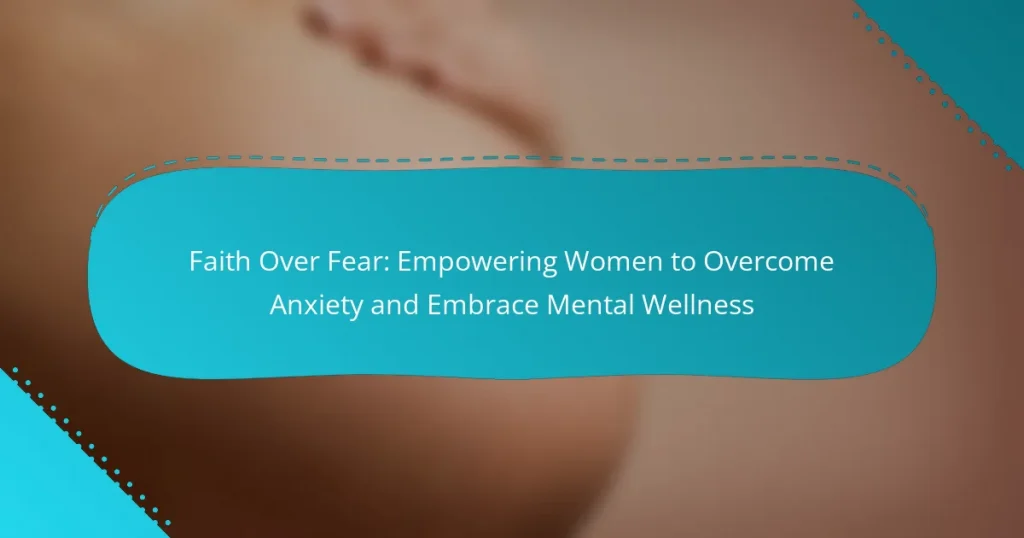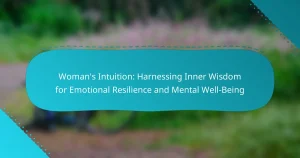Overcoming anxiety is a significant challenge for many women, but embracing mental wellness can provide a pathway to resilience. This article explores how faith empowers women to confront fears, the universal benefits of faith in reducing anxiety, and unique strategies like mindfulness and community support. It also highlights the importance of integrating faith into daily life through practices such as prayer and scripture reading to foster emotional stability.
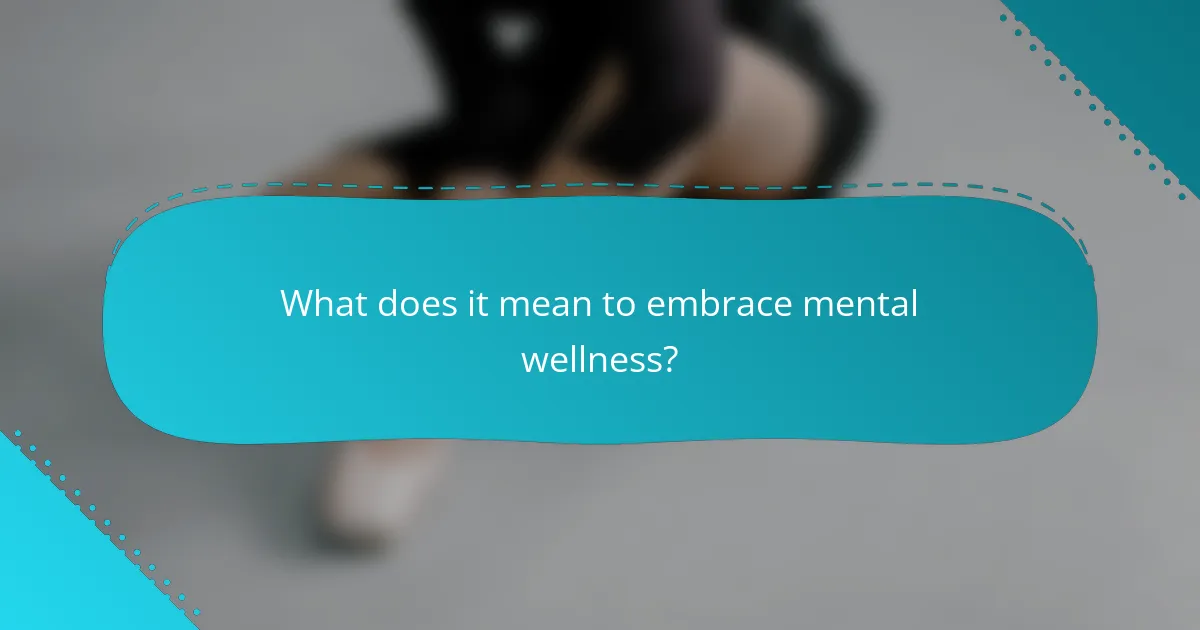
What does it mean to embrace mental wellness?
Embracing mental wellness means prioritizing emotional health and fostering resilience against anxiety. It involves adopting practices that promote self-care, mindfulness, and a supportive community. Faith can empower women to confront fears, thereby enhancing their mental well-being. Research indicates that women who engage in supportive networks experience reduced anxiety and improved coping strategies.
How does anxiety manifest in women?
Anxiety in women often manifests through physical symptoms, emotional distress, and behavioral changes. Common physical signs include headaches, fatigue, and gastrointestinal issues. Emotionally, women may experience excessive worry, irritability, and feelings of overwhelm. Behaviorally, anxiety can lead to avoidance of social situations and difficulty concentrating. These manifestations can significantly impact daily life and overall mental wellness. Addressing anxiety through empowerment strategies can enhance resilience and promote mental health.
What are common triggers for anxiety in women?
Common triggers for anxiety in women include stress from work, relationship issues, financial concerns, and societal pressures. Hormonal changes, particularly during menstrual cycles or menopause, can also intensify anxiety. Additionally, past trauma and mental health history play significant roles in anxiety levels. Understanding these triggers empowers women to develop coping strategies and seek support.
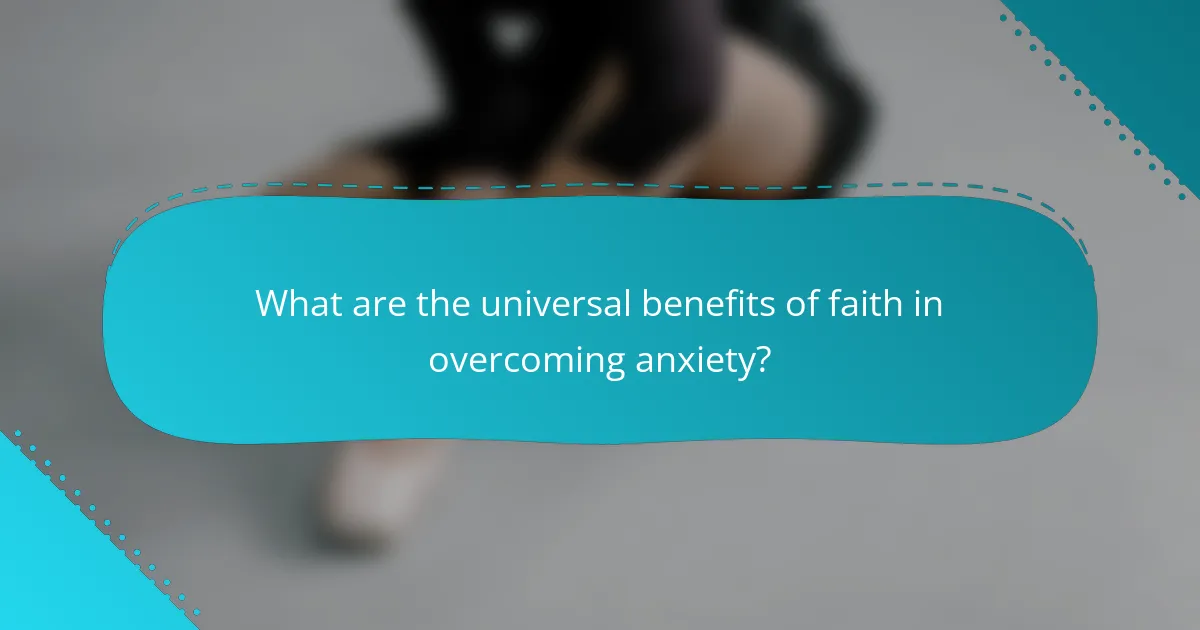
What are the universal benefits of faith in overcoming anxiety?
Faith offers universal benefits in overcoming anxiety by providing emotional support, fostering resilience, and enhancing coping mechanisms. It cultivates a sense of purpose and belonging, which can alleviate feelings of isolation. Research indicates that individuals with strong faith often experience lower levels of anxiety and stress, as faith can serve as a buffer against life’s challenges. Additionally, faith encourages positive thinking and mindfulness, promoting mental wellness.
How does faith influence mental resilience?
Faith significantly enhances mental resilience by providing individuals with a sense of purpose and hope. This psychological support can reduce anxiety and foster a positive mindset. Studies show that faith can activate coping mechanisms, enabling individuals to manage stress effectively. For instance, individuals with strong faith often report lower levels of anxiety and depression, highlighting its unique attribute as a buffer against mental health challenges. Embracing faith can empower women to confront fears and cultivate mental wellness, reinforcing their resilience in difficult times.
What role does community play in mental wellness?
Community plays a crucial role in mental wellness by providing support, connection, and resources. Engaging with a supportive community fosters a sense of belonging, which can alleviate feelings of anxiety and isolation. Shared experiences within the community create opportunities for empowerment and collective healing, particularly for women overcoming anxiety. Research shows that social support can significantly reduce stress and improve mental health outcomes. By participating in community activities, individuals can gain valuable insights and encouragement, reinforcing their journey towards mental wellness.
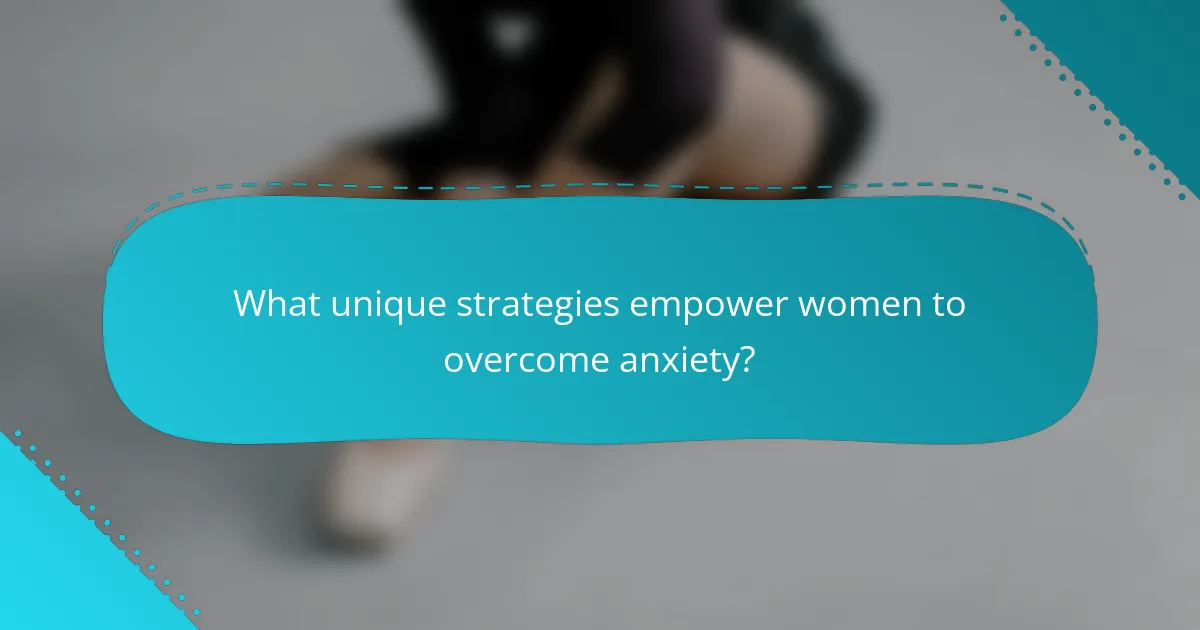
What unique strategies empower women to overcome anxiety?
Women can overcome anxiety through unique strategies such as mindfulness practices, community support, and faith-based approaches. Mindfulness techniques help women stay present and manage anxious thoughts effectively. Community support offers a network of understanding and encouragement, fostering resilience. Faith-based approaches provide a sense of purpose and strength, allowing women to confront fears with confidence. These strategies empower women to embrace mental wellness and cultivate a balanced mindset.
How can personal narratives transform mental health perspectives?
Personal narratives can significantly transform mental health perspectives by fostering connection and understanding. Sharing experiences of overcoming anxiety empowers women, illustrating resilience and hope. This unique attribute of storytelling promotes community support, reducing stigma around mental health issues. As a result, personal narratives inspire others to embrace their journeys toward mental wellness, creating a ripple effect of empowerment.
What specific practices cultivate a faith-based approach to wellness?
Faith-based practices that cultivate wellness include prayer, meditation, community support, and scripture reflection. These activities foster resilience and inner peace, empowering women to confront anxiety. Engaging in regular prayer can enhance emotional stability, while meditation encourages mindfulness. Community support provides a sense of belonging, which is crucial for mental health. Reflecting on scripture offers guidance and comfort, reinforcing faith as a source of strength. Collectively, these practices create a holistic approach to mental wellness.
How can journaling enhance self-reflection?
Journaling enhances self-reflection by providing a structured way to process thoughts and emotions. It allows women to confront anxiety, fostering mental wellness. Through regular writing, individuals can identify patterns in their feelings and behaviors, leading to greater self-awareness. Studies show that expressive writing can reduce stress and improve emotional regulation, making it a valuable tool for personal growth.
What are the benefits of group support sessions?
Group support sessions offer numerous benefits for women facing anxiety. They foster a sense of community, allowing participants to share experiences and feelings. This connection reduces feelings of isolation and promotes emotional well-being. Additionally, these sessions provide practical coping strategies, empowering women to manage anxiety effectively. Regular attendance can enhance self-esteem and reinforce personal growth through shared encouragement and accountability.

What rare insights can enhance women’s mental health journeys?
Faith can provide unique insights that enhance women’s mental health journeys by fostering resilience and hope. Engaging in faith-based practices, such as prayer and community support, can significantly reduce anxiety levels. Studies indicate that women who integrate spirituality into their mental wellness strategies often report improved emotional stability. Additionally, narratives of faith can serve as powerful tools for overcoming fear, enabling women to embrace their mental health journey with confidence.
How do cultural influences shape perceptions of anxiety?
Cultural influences significantly shape perceptions of anxiety by framing how individuals understand and respond to mental health challenges. Different cultures may emphasize resilience, community support, or spiritual beliefs as essential components in addressing anxiety.
For instance, in many collectivist cultures, community and family support systems play a crucial role in coping with anxiety. This contrasts with individualistic cultures, where personal achievement and self-reliance are often highlighted.
Additionally, cultural narratives around mental health can either stigmatize or normalize anxiety, affecting how women perceive their experiences. Empowering women within these cultural contexts involves promoting mental wellness strategies that respect and incorporate their cultural backgrounds.
Ultimately, understanding these cultural influences enables tailored approaches to anxiety, fostering an environment where women can overcome challenges and embrace mental wellness.
What innovative therapies are available for anxiety management?
Innovative therapies for anxiety management include cognitive behavioral therapy, mindfulness practices, and art therapy. These approaches empower women to confront fears and promote mental wellness. Cognitive behavioral therapy focuses on changing negative thought patterns. Mindfulness practices enhance self-awareness and reduce stress. Art therapy provides a creative outlet for emotional expression. Each therapy offers unique benefits tailored to individual needs, fostering resilience and healing.

What are the best practices for integrating faith into daily life?
Integrating faith into daily life involves consistent practices that foster mental wellness. Daily prayer and meditation create moments of reflection, reducing anxiety. Engaging in community worship strengthens connections, providing support. Scripture reading offers guidance and comfort, reinforcing a positive mindset. Serving others cultivates gratitude, shifting focus from fear to faith.
How can women create a personalized wellness plan?
Women can create a personalized wellness plan by identifying their unique mental health needs and setting achievable goals. Start by assessing current stressors and anxiety levels. Incorporate practices such as mindfulness, exercise, and social support. Regularly review and adjust the plan to ensure it remains effective and aligned with personal growth.
What common mistakes should be avoided in the journey to mental wellness?
To achieve mental wellness, avoid common mistakes that hinder progress. Recognizing these pitfalls can empower women to overcome anxiety effectively.
1. Ignoring professional help: Seeking therapy or counseling is crucial for guidance.
2. Neglecting self-care: Prioritize activities that promote relaxation and joy.
3. Comparing with others: Focus on personal growth rather than external benchmarks.
4. Avoiding discomfort: Embrace challenges as opportunities for growth.
5. Overlooking support networks: Build connections with friends and family for encouragement.
6. Setting unrealistic expectations: Aim for gradual improvement rather than perfection.
What expert insights can guide women in overcoming anxiety?
Expert insights suggest that women can overcome anxiety by embracing a mindset rooted in faith. Techniques such as mindfulness, prayer, and community support play crucial roles in fostering mental wellness. Research indicates that women who engage in spiritual practices report lower anxiety levels. Additionally, cognitive-behavioral strategies can help reframe negative thoughts, empowering women to face their fears. Building a supportive network of friends and family further enhances resilience against anxiety.
